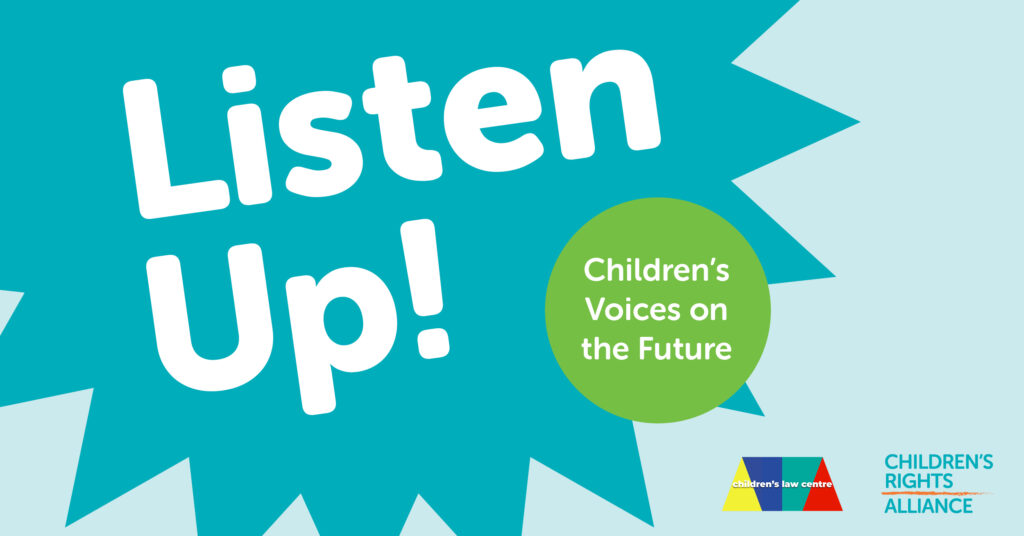25 April 2024
A new report titled Listen Up! Children’s Voices on the Future reveals how children and young people across the island of Ireland feel about the uncertainty surrounding Brexit and how they can participate in decisions affecting their lives, their community and wider society.
The research was commissioned by the Children’s Law Centre and Children’s Rights Alliance and involved consultations with children and young people from a range of backgrounds across both jurisdictions on the island of Ireland.
Alongside Listen Up!, a detailed legal analysis on The Post-Brexit Legal Framework was be published. This research was carried out by Professor Helen Stalford and Professor Michael Dougan from the University of Liverpool and highlights the implications of the Framework for Children’s Rights on the Island of Ireland.

Key Findings of the Listen Up! report
- Participants unanimously agreed that the decision to leave the EU was ‘not a good thing’.
- Young people had contrasting perceptions on the peace and stability of Northern Ireland post- Brexit. For many young people living in Ireland there was an underlying apprehension that Brexit would be a catalyst for a return to conflict in Northern Ireland. Participants in Northern Ireland thought it unlikely that things would get worse, however, they were aware of a range of negative effects such as receiving goods, paramilitary activity, and general political unrest.
- The view that racist attitudes were increasingly noticeable and, with many families no longer feeling able to stay in the UK post-Brexit. These views were also reflected in the young people’s experiences of not feeling wanted and navigating language and cultural barriers.
- Some young people voiced their feelings on what it means to be Irish and the role of the Irish Language as a strong feature of Irish identity. Many feared the loss of the language and expressed a need for more opportunities for immersive learning.
Speaking on the launch of the report, Fergal McFerran, Policy and Public Affairs Manager, Children’s Law Centre said:
“The young people highlighted in the report are very clear in their understanding of all of the big challenges facing us locally, regionally and globally.
“In relation to Brexit, many of the young people highlighted their concerns around heightened tensions, xenophobia and deteriorating community relations as a result of Brexit. They also articulated a sense of frustration at the way in which the media and politicians characterised post Brexit arrangements.
“The key takeaway is that the young people have clear views and many felt the impact of Brexit, yet they weren’t consulted on it. Major decisions like this cannot be taken without asking children and young people for their views.”
It is clear that children are not blind to the moral questions surrounding the big-ticket social issues that affect their lives in the here and now, and the research signals the need for children’s views to be given further consideration as we look to the future of children’s rights on the island of Ireland.
Tanya Ward, Chief Executive of the Children’s Rights Alliance added:
“The research also demonstrates how bigger social and political issues permeate through all levels of society. We hear from very young children who are aware of the wider global narrative and are very conscious of the experiences of their friends and their community. Yet, children and many young people did not get the opportunity to vote in a decision that immediately and irrefutably changed their lives. While we may be through the critical negotiations, governments in both jurisdictions have a long road ahead navigating the impact of Brexit. It is essential that young people are given the opportunity to shape it as the next generation who will need to carry this responsibility.”
